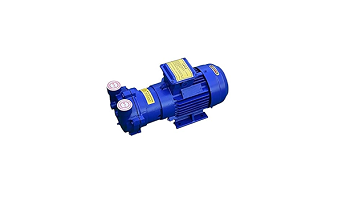What is a dry vacuum pump?

What is a dry vacuum pump?
A dry vacuum pump is a type of vacuum pump that does not use oil or other liquids to create a vacuum. Instead, it relies on mechanical components like vanes, screws, or scrolls to compress and remove gases from a chamber, resulting in a clean, oil-free vacuum. These pumps are favored in applications where even trace amounts of oil or other contaminants are unacceptable, such as in semiconductor manufacturing or scientific research.
Here’s a more detailed explanation:
-
No Lubrication Required:Unlike traditional vacuum pumps that rely on oil or other fluids for sealing and lubrication, dry vacuum pumps operate without any liquid lubricant within the pumping mechanism.
-
Clean Vacuum:The absence of oil or other liquids in the pumping chamber ensures that the vacuum produced is free of contaminants, which is crucial in many industrial and research applications.
-
Variety of Mechanisms:Dry vacuum pumps come in various designs, including:
- Scroll pumps: These use orbiting scrolls to compress and move gas.
- Screw pumps: These employ intermeshing screws to compress and transport gases.
- Claw pumps: These feature claw-shaped rotors that trap and move gas.
- Diaphragm pumps: These use a flexible diaphragm to create a vacuum.
- Scroll pumps: These use orbiting scrolls to compress and move gas.
-
Applications:Dry vacuum pumps are widely used in:
- Semiconductor manufacturing: Ensuring cleanliness in chip fabrication.
- Scientific research: In instruments like mass spectrometers and electron microscopes.
- Chemical processing: For handling corrosive vapors and solvent recovery.
- Vacuum drying: For removing moisture from heat-sensitive materials.
- Pharmaceutical and food industries: For applications requiring high purity.
- Semiconductor manufacturing: Ensuring cleanliness in chip fabrication.
-
Advantages:Compared to wet vacuum pumps, dry vacuum pumps offer:
- Reduced maintenance: No oil changes or refills are needed.
- Lower operating costs: Energy consumption can be lower due to increased efficiency.
- Environmental friendliness: No risk of oil leaks or disposal issues.
- Enhanced cleanliness: Essential for applications where contamination is unacceptable.
- Reduced maintenance: No oil changes or refills are needed.
Can a vacuum pump run continuously?
What happens when vacuum pump fails?
